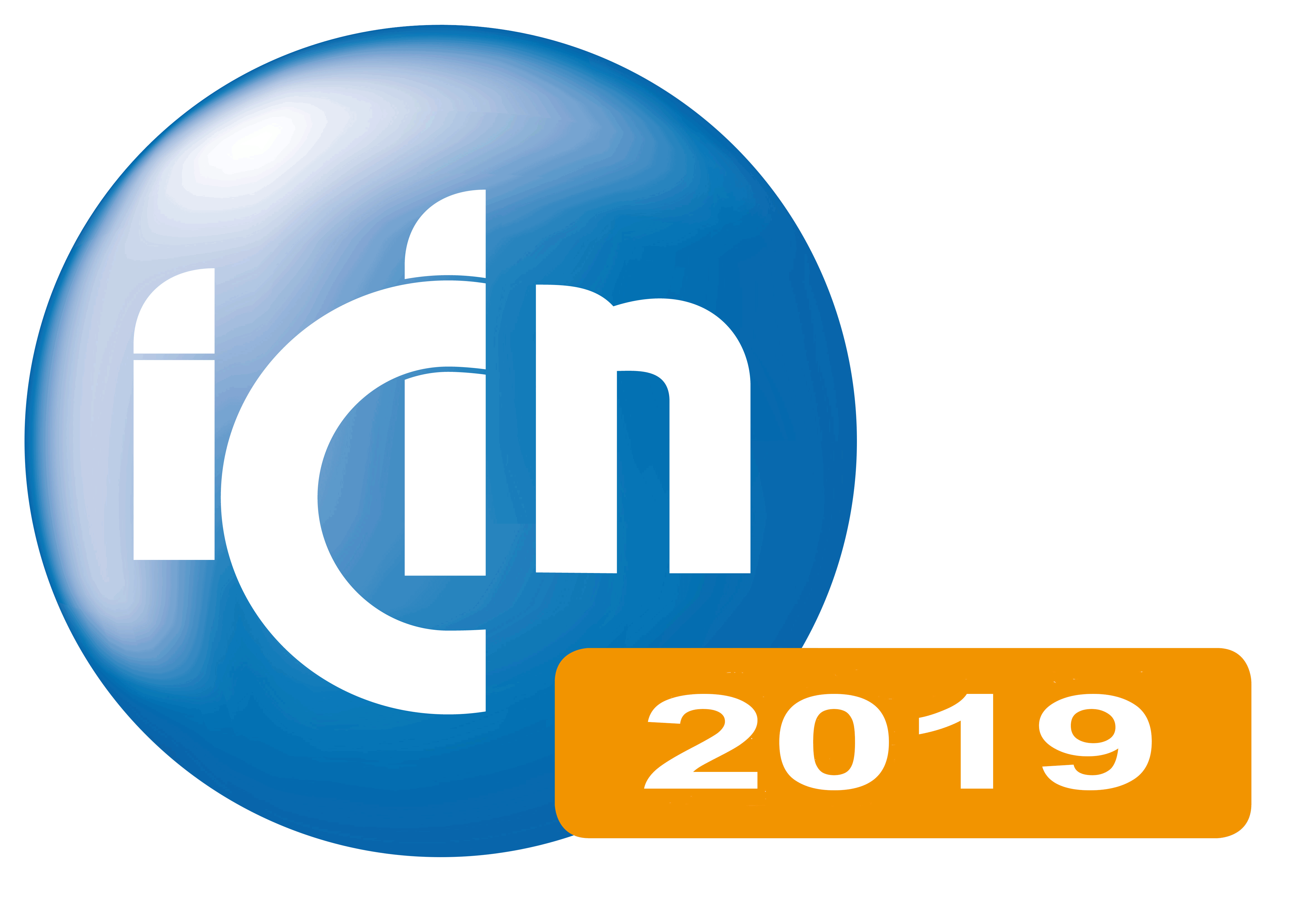
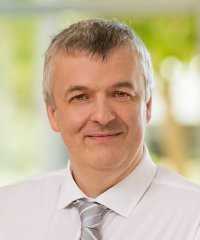
Abstract: Networking technologies have been fast evolving over the past two decades leading to a broad range of technologies (numerous PHY/MACs, routing, QoS, high availability, security, ....) while requiring increasingly stringent requirements (from best effort to deterministic). Advanced analytics with Machine Learning is already playing a key role in today’s networks, a trend that will undoubtedly increase very quickly in the coming years. That being said, the gap between what is being claimed in research papers and implementable at scale in commercial products keeps increasing, at the risk of disillusions in a near future. This talk will take a pragmatic approach sharing almost decade of experience implementing ML/AI product for networking, beyond “Proof of Concepts”. Several breakthrough networking ML/AI applications (IoT, Wireless/Wired networks) will be discussed, providing fascinating results. The last part will be dedicated to the main challenges implementing ML/AI.
Biography: JP Vasseur, PhD is a Cisco Fellow and lead of an engineering team developing products where he has been working on a number of networking
technologies such as IP/MPLS, Quality of Service, Traffic Engineering, network recovery, PCE,
“Internet of Things” (as the Chief Architect), Security, Wireless Networks since he joined Cisco
in 1998. From 1992 to 1998, he worked for Service Providers in large multi-protocol
environments, with a key focus on bringing cutting-edge innovation in shipping products.
JP has been an active member of the Internet Engineering Task Force (co-author of more than
35 IETF RFCs, funders and co-chair of several Working Groups such as the PCE and ROLL WG),
and in several SDOs.
Since 2010, JP has been leading world class engineering teams of advanced networking and
Analytics/Machine Learning (Self Learning Networks, Cloud-based Machine Learning) with key
applications such as Security, network cognitive and predictive analytics for Enterprise
Networks (wireless, LAN, WAN). JP is a regular speaker at various international conferences, he
is involved in various research projects and the member of a number of Technical Program
Committees. JP Vasseur is also Associate Professor at Telecom Paris.
He is the (co)inventor of more than 500 patents in the area of IP/MPLS, Security, The Internet
of Things and Machines Learning / Analytics (#1 inventor at Cisco), with large impact in
Internet Technologies.
He is the coauthor of “Network Recovery” (Morgan Kaufmann, July 2004), “Definitive MPLS
Network Designs” (Cisco Press, March 2005) and "Interconnecting Smart Object with IP: The
Next Internet (Morgan Kaufmann, July 2010 - http://www.thenextinternet.org/).
JP received a PhD in Networking (Mines-Telecom Paris – France, a Master of Science in
Computer Science (Steven - USA) and an engineering degree in computer Science (France).
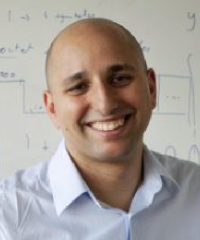
Abstract: Mobile cellular networks are becoming increasingly complex to manage while classical deployment/optimization techniques are cost-ineffective and thus seen as stopgaps. This is all the more difficult considering the extreme constraints of 5G networks in terms of data rate (more than 10 Gb/s), massive connectivity (more than 1,000,000 devices per km2), latency (under 1ms) and energy efficiency (a reduction by a factor of 100 with respect to 4G network). Unfortunately, the development of adequate solutions is severely limited by the scarcity of the actual resources (energy, bandwidth and space). Recently, the community has turned to a new resource known as Artificial Intelligence at all layers of the network to exploit the increasing computing power afforded by the improvement in Moore's law in combination with the availability of huge data in 5G networks. This is an important paradigm shift which considers the increasing data flood/huge number of nodes as an opportunity rather than a curse. In this talk, we will discuss through various examples how the recent advances in big data algorithms can provide an efficient framework for the design of Next Generation Intelligent Networks.
Biography: Mérouane Debbah is a Full Professor at CentraleSupelec (Gif-sur-Yvette, France) and the Director of the Mathematical and Algorithmic Sciences Lab, Huawei. His research interests lie in fundamental mathematics, algorithms, statistics, information & communication sciences research.
He is an IEEE Fellow, a WWRF Fellow and a member of the academic senate of Paris-Saclay. He is a leading researcher in wireless communications and recipient of several prestigious awards. Mérouane Debbah entered the Ecole Normale Supérieure Paris-Saclay (France) in 1996 where he received his M.Sc and Ph.D. degrees respectively.
He worked for Motorola Labs (Saclay, France) from 1999-2002 and the Vienna Research Center for Telecommunications (Vienna, Austria) until 2003. From 2003 to 2007, he joined the Mobile Communications department of the Institut Eurecom (Sophia Antipolis, France) as an Assistant Professor. Since 2007, he is a Full Professor at CentraleSupelec (Gif-sur-Yvette, France).
From 2007 to 2014, he was the director of the Alcatel-Lucent Chair on Flexible Radio. Since 2014, he is the director of the Mathematical and Algorithmic Sciences Lab.
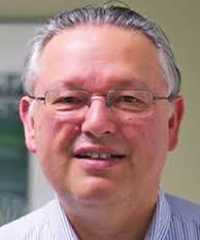
Abstract: The trend towards digitization of products, services, and processes is challenging the notion and intuition of what Networks are, and how we should think about them. One manifestation, as seen in practical IoT solutions and applications, is the interweaving of technologies, domain knowledge, and operational principles from very different and dissimilar industries. Coincident with that is the dependence of the push towards digitization on essential general purpose infrastructure. This includes traditional utilities such as power and communications. It is, however, increasingly dominated by new widely available infrastructures for computing, data storage, sensing, actuation, operational interfaces, and software. The change over from tightly integrated single purpose vertical oriented solutions to reliance on shared building blocks offers great opportunities for innovation but at the same time creates a steep learning curve to achieve maturity. In this setting automation plays a central role in determining what will be successful and what will not. It defines the economics of operation at scale and for satisfying key requirements such as trust, security, privacy, reliability, availability, and the flexibility to accommodate vertical specific needs. Precursors of the ideas about automation in digitization and IoT offer some powerful lessons as do recent experiences that highlighting both successes and the difficulties encountered in actual deployments. Historical and recent examples from multiple Verticals will be used to illustrate the key points.
Biography: Dr. Adam T. Drobot is a technologist with management expertise and more than 40 years of experience with business, government, and academia. Today his activities include strate-gic consulting, start-ups, and participation in industry associations and government advisory bodies. Previously he was the President of the Applied Research and Government Business Units at Telcordia Technologies, and the company’s CTO from 2002 to 2010. Prior to that, Adam managed the Advanced Technology Group at Science Applications International Corporation (SAIC).
He also served as Senior Vice President for Science and Technology as part of his 27 years of service at SAIC from 1975 to 2002. He has published more than 100 journal articles, and is a frequent contributor to industry literature. He currently holds 21 patents. Adam is the 2007 recipient of IEEE’s Managerial Excellence Award. He holds a B.S. in Engineering Physics from Cornell University and a Ph.D. in Plasma Physics from the Uni- versity of Texas. He is currently a member of several corporate boards and the FCC Technology Advisory Council, and he chairs the TIA’s Board Technology Committee.
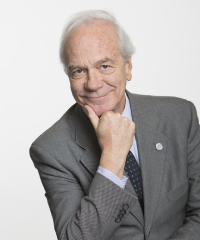
Abstract: Digital Twins have been listed among the 10 most impactful emerging technologies of 2018. In a way they are already a well entrenched tech, being used by major companies like General Electric and Siemens, and have their roots going back at least to 15 years ago. At the same time they are a technology that is evolving fast and that will see a tremendous growth with adoption expanding to areas like healthcare and education, thus becoming a major force in the ongoing Digital Transformation.
The deployment of 5G will act as a catalyst further stimulating its growth.
The talk will address both the current status of digital twins as the foreseen evolution in tech and application, based on the studies made in the IEEE/FDC Symbiotic Autonomous Systems Initiative. Economic aspects as well as ethical and societal issues will also be addressed.
Biography: Roberto Saracco fell in love with technology and its implications long time ago. His background is in math and computer science. Until April 2017 he led the EIT Digital Italian Node and then was head of the Industrial Doctoral School of EIT Digital up to September 2018. Previously, up to December 2011 he was the Director of the Telecom Italia Future Centre in Venice, looking at the interplay of technology evolution, economics and society. At the turn of the century he led a World Bank-Infodev project to stimulate entrepreneurship in Latin America.
He is a senior member of IEEE where he leads the Industry Advisory Board within the Future Directions Committee and chairs the Symbiotic Autonomous Systems Initiative. He teaches a Master course on Technology Forecasting and Market impact at the University of Trento.
He has published over 100 papers in journals and magazines and 14 books, plus several ebooks. Among this latter there is one on Digital Twins, published on the iBook store in November 2018.
He writes a daily blog, http://sites.ieee.org/futuredirections/category/blog/, with commentary on innovation in various technology and market areas.